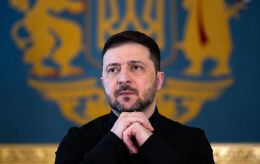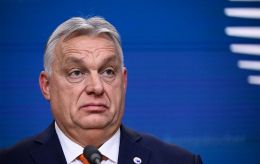Hungary's veto, aid for Ukraine, and 2030 EU accession deadline – Interview with Commissioner Marta Kos
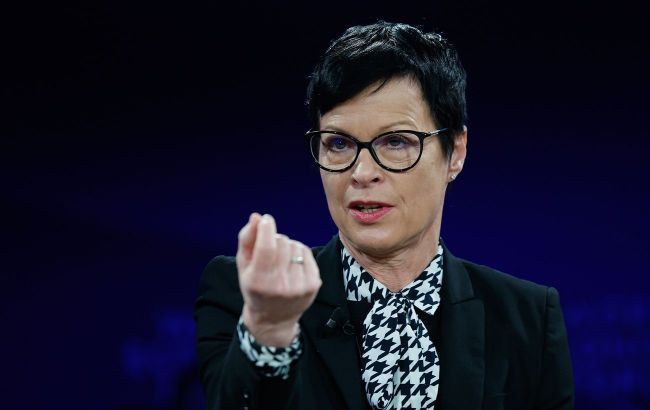 European Commissioner for Enlargement Marta Cos (photo: Getty Images)
European Commissioner for Enlargement Marta Cos (photo: Getty Images)
On Hungary's veto of further negotiations with Ukraine, the prospects of joining the European Union, how EU citizens feel about Ukraine's accession, billion-euro aid and reconstruction during wartime – read in the interview with European Commissioner for Enlargement, Marta Kos.
Key questions:
- When will it be possible to overcome Hungary's veto on talks with Ukraine?
- Is EU accession by 2030 realistic?
- Which countries' citizens support Ukraine's Eurointegration the most?
- How much money is the EU allocating to Ukraine right now, and what can be expected in the coming years?
Further official steps regarding Ukraine's Eurointegration, namely the opening of the first negotiating cluster, are effectively blocked due to Hungary's veto. Unlike many similar cases in the past, this time it appears that Hungarian Prime Minister Viktor Orbán is determined to make resisting Ukraine's movement toward the EU a central issue in his campaign for next year's elections.
Still, as Marta Kos, the European Commissioner for Enlargement, emphasizes, the EU has managed to adopt joint decisions in the past despite difficulties. She is confident that this will happen again, before the Hungarian elections.
In her conversation with RBC-Ukraine, Kos frequently refers to the experience of her native Slovenia, which also endured a war at the start of its independence - after which Eurointegration became its only path forward.
"The war was by far not that big as now in Ukraine, it lasted only 10 days. But you know, from this war on, it was clear that the only perspective we have is in the EU. Of course, it took us some years, we became a member in 2004, but all those years I really remember this special energy and hope that once we belong to a community of values and democracy, nobody can hurt us. And here I see some parallels also in Ukraine," the commissioner said.
In the conversation, RBC-Ukraine raised not only the issue of Eurointegration, but also the EU's current aid to Ukraine, the use of frozen Russian assets, and reconstruction - especially as tomorrow, July 10, a major Ukraine Recovery Conference will open in Rome, Italy, focused on these topics.
– How to deal with Hungary's veto that effectively stops the opening of the first cluster of negotiations?
– The most important thing I would like to stress here is that EU member states have decided unanimously, including Hungary, to open accession negotiations with Ukraine one year ago. So this is the basis on which we are building now. Ukraine has done its homework, and we have always defended that EU accession is merit-based, meaning that if the country fulfills the criteria, it can go on.
So, for the time being, there is no reason not to open cluster one, which is a very important cluster. I think that Ukraine is delivering really a lot in the sense that we have already sent two additional screening reports on clusters two and six to the Council.
And I will tell you a story. When I was on my first working day, December 1st, in Ukraine, President Zelenskyy told me that he would like to open all the clusters. And not directly, but kind of diplomatically, I tried to tell him that it is not possible, because this would really be so quick, and we cannot do it. Now I have to correct myself because you, Ukrainians, are doing an amazing, really amazing job, so we will be ready to open all the clusters in the autumn time.
Of course, the decision has to be made in the Council (i.e. to be unanimous, - ed.), but from the technical point of view, we are ready. And I have full trust in the Danish presidency (in the EU, started on July 1 of this year, - ed.). I was in Denmark last week with the whole College, and also your President was there, and we have all given a clear message to Ukraine: please stay strong, keep up reforms, continue fighting corruption and strengthening the rule of law, because all of this will contribute to a safer Ukraine, and with this, also safer Europe.
– But if Hungary's political veto in the Council is still there for the months to come, is there any sort of plan B, what may this plan entail, maybe some technical things may be done?
– Our position, the position of the Commission is very clear. Cluster one is ready to be opened, Ukraine has delivered, and we should open as soon as possible. I have to say that even if sometimes the EU, with the 27 member states and the complicated decision-making process, seems to be complicated or bureaucratic, I can assure you that in the most difficult circumstances, sometimes in the past, we have been able to find a solution, I'm sure that we will find a proper solution for opening cluster one for Ukraine and Moldova too.
– So do you believe that such a solution may realistically be found before Hungary's election next spring?
– Yes, I'm sure.
– You are in charge not only of Ukraine's path to join the EU but also all the other countries that want to become EU members, so can you say which countries may overtake Ukraine on this path to EU membership?
– This is not about racing, who would be the first, who would be the last. The basic is that the procedure to become a member of the EU depends really on how the candidate country is capable of aligning legislation in the country with the European one. So we have different candidate countries and the timing depends on many factors.
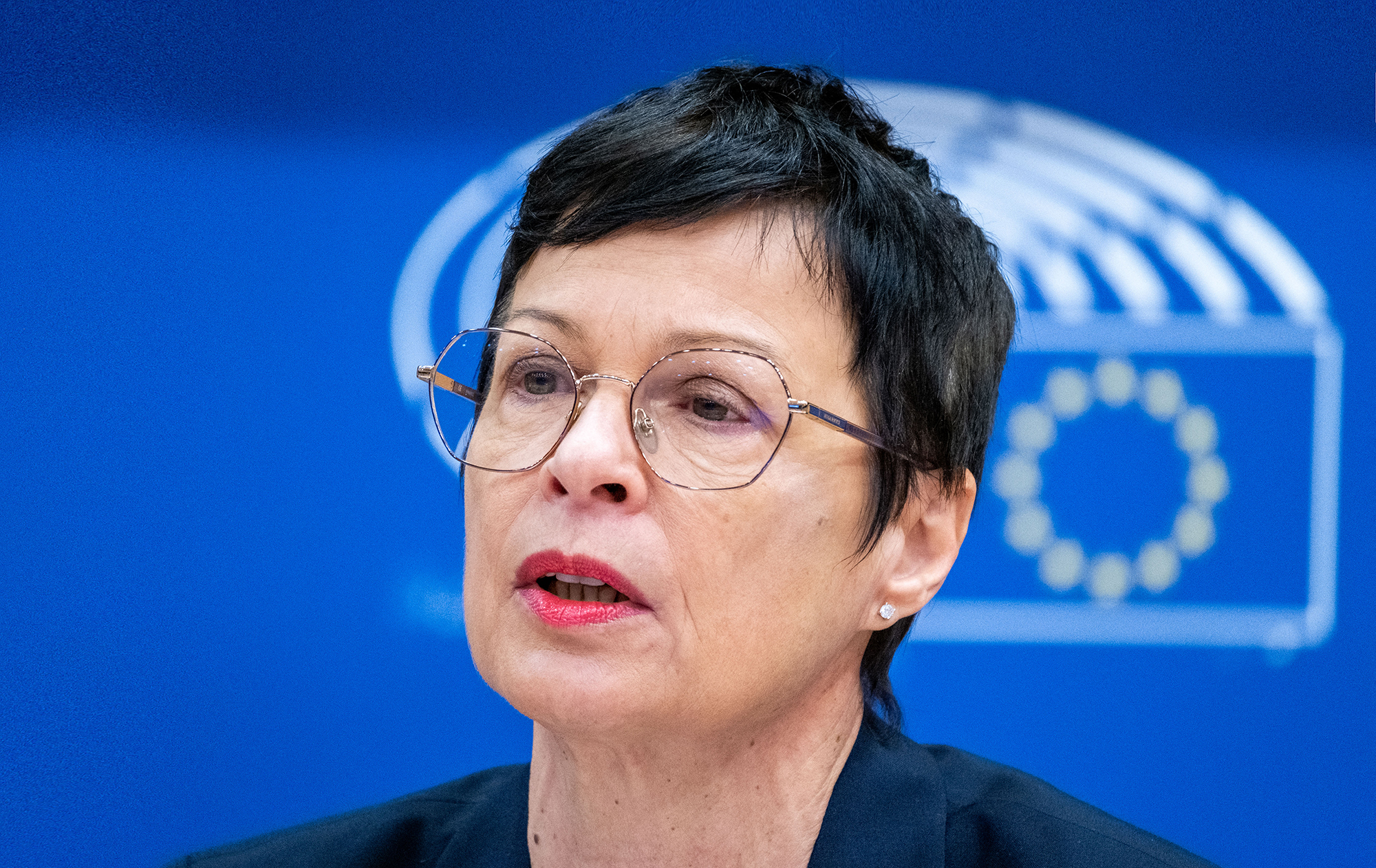
Also, as I have said, the degree of alignment, then the political will of the candidate countries to adjust to EU rules, and of course the strong leadership towards the EU. And to all of these areas, I can say that Ukraine is really delivering very, very quickly. But we also have to consider that there are some candidates from the Western Balkans waiting to start negotiations for 20 years.
For instance, North Macedonia. North Macedonia got a status in 2005, and I would like to say that if Ukraine had to wait as long as North Macedonia is waiting, you would have to wait until 2045, which is not the case. So it is not about overtaking, it is about delivering, and it is also about delivering on our side.
So I would like to tell you that more than 1,000 people, my co-workers in Brussels, not only in my directorate, are working on one accession country, meaning that we can also deliver very quickly. So I would say that since the enlargement, especially of Ukraine, is one of the most important priorities of the EU, we will be delivering, and I'm sure Ukraine will deliver too. As you have probably heard, our President (Ursula von der Leyen, - ed.), once visiting Kyiv, said that she can see that Ukraine could become a member of the EU before 2030.
– Do you think that this goal is still plausible, given all the challenges?
– Yes, it is. I have to say that what we demand from our candidate countries is really a lot because it is adjusting the whole legal system across all different areas. It is not just about the rule of law, it is about the economy, it is about the statistics, and it is about building up institutions that will be robust and resilient to fulfill all the Copenhagen criteria, so I can say that Ukraine is really doing well.
– Is the so-called decoupling of Ukraine's and Moldova's paths to the EU still on the table, still eventually possible?
– The position of the Commission here is clear. Both Ukraine and Moldova are ready to open cluster one, and I want to see both countries move forward now. The next steps depend now solely on how member states decide to take forward the process in the Council, so the Council is now in the driving seat.
– How capable will the European Union be to continue supporting Ukraine in 2026 and beyond? And a follow-up question to this, what will eventually happen with the billions of Russian immobilized assets kept in Brussels?
– Before I go into the numbers, which are important for your outlet, I would like to say that there is no doubt that Ukraine's future is European, and that's why the EU stands with you, and will stand with you, not just today, but also in the future. It is not only about economic help, financial help, the accession process, and humanitarian aid. But what for me is more important now is that Ukraine's struggle is also our European struggle.
We just have to remember that the European Union has been established with the main goal of providing peace, freedom, and prosperity in Europe. So, actually, it started with a peace project, and in the last years, I can also talk from my experiences (my country, Slovenia, entered the EU in 2004), in the last years or even decades, we have seen the accession process so much through economic glasses. Of course, the economy is important and prosperity is important, but now, because of Ukraine and because of your fight for European values, again, peace and freedom are more than important, more than in the past.
So, in this respect, many times I get questions: why do you help Ukraine so much? Because, you know, Ukraine is Europe, and the conflict with Russia didn't start with the war in 2022, it started in 2014 when Ukraine decided to sign the FTA with Europe. So Russia was upset because you had clearly decided to go the European way at that time on the economic part, but now the situation is different.
So, this is, you know, a simple answer to the question 'Why are you supporting Ukraine?'. It is because it is really rightly so.
We have just made a survey on how the member states are supporting Ukrainian membership in the EU, and Ukraine is the most popular candidate country in 14 member states, so more than half. For instance, 91% of citizens of Sweden support Ukrainians' integration in the EU, 81% in Denmark, 81% in Finland, 72% in Lithuania, and so on. And we are also happy that we have information from Ukraine that 70% of your citizens would vote in favor of EU membership, and the number for the trust is even higher at 82%. So I think it is not just about the numbers, but these numbers really, really show that there is a huge hope in Ukraine regarding EU membership.
And again, you know, if I take a parallel to my country, Slovenia became independent for the first time in 1991. We split from Yugoslavia. Nobody, at that time, expected that we would have a war, but three hours after we had declared our independence, the tanks of the Yugoslav army rolled out.
The war was by far not as big as now in Ukraine; it lasted only 10 days. But you know, from this war on, it was clear that the only perspective we have is in the EU. Of course, it took us some years, we became a member in 2004, but all those years I really remember this special energy and hope that once we belong to a community of values and democracy, nobody can hurt us. And here I see some parallels also in Ukraine.
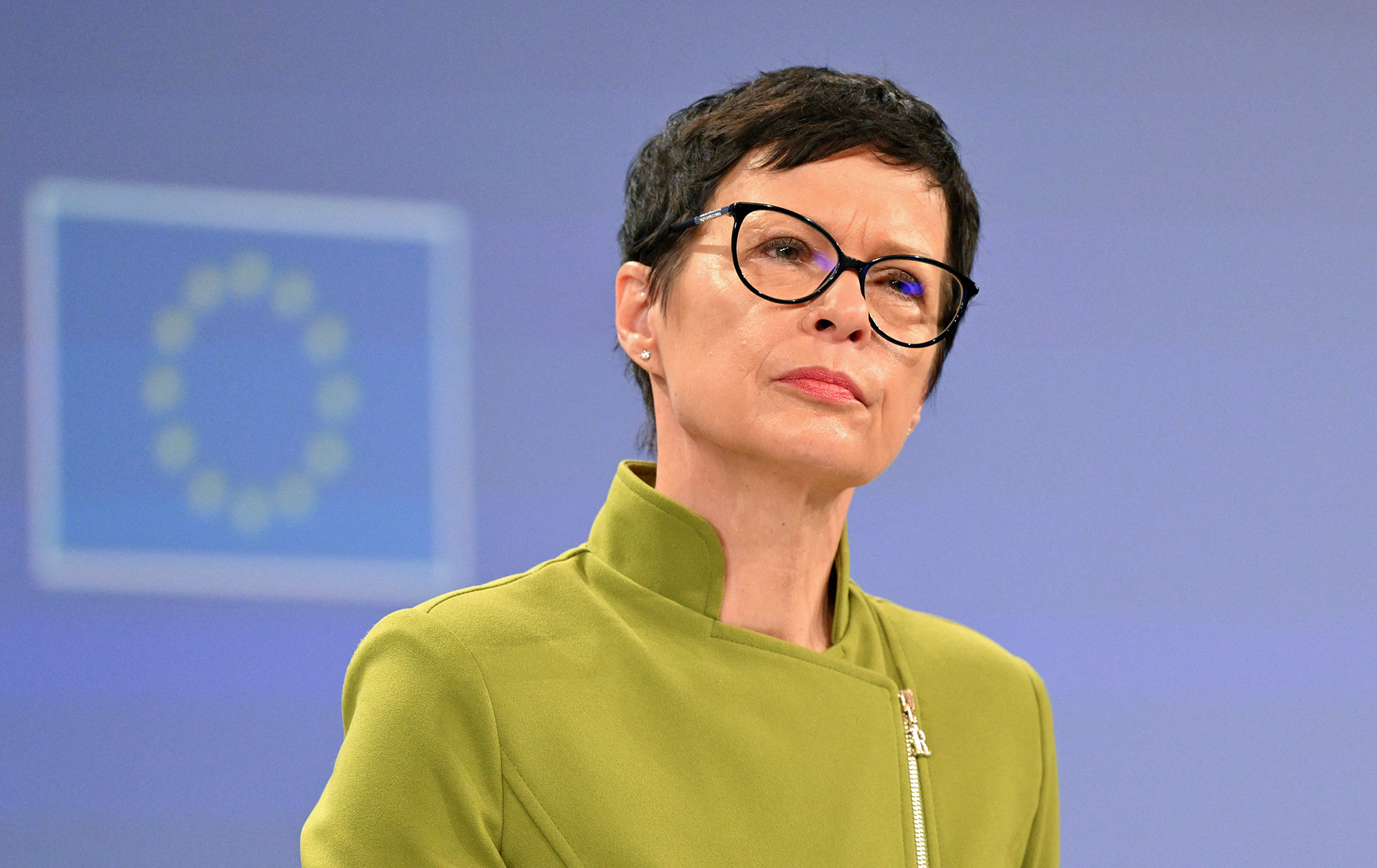
So, now going to the numbers, the EU is the largest and most stable donor and investor to Ukraine. Ukraine's budget, recovery, reconstruction, and modernization are financed primarily by the EU, and we will continue this path. Since the beginning of the Russian invasion in 2022, the EU and also our member states have mobilized nearly 160 billion euros in humanitarian, financial, and military assistance to Ukraine, and this is more than anybody else. We expect that in this year, for instance, the EU is expected to cover more than 80% of Ukraine's external financing needs, and we will go on in the next years.
You have also asked about the Russian immobilized assets. We have already started using the proceeds. These proceeds underpin the $50bn ERA loans by the G7, of which the EU has already disbursed €7 bn this year. In addition, we are also using these proceeds to boost Ukraine's military: €3.6 billion have been or are being mobilized to procure defense equipment for Ukraine under the European Peace Facility.
– The Ukraine Recovery Conference is about to start very soon. What key decisions should we expect, and more broadly, what can be done in the field of reconstruction during this very active phase of the war?
– You are right, and you know, the thing which is amazing to me all the time, and I have seen this touring through Europe, is that not only the states but also the private companies are ready to do business or invest in Ukraine, even if the war goes on. I have been personally participating in business conferences in The Hague, in Paris, and also in Copenhagen, and I have seen that the European companies are getting ready or are already there. This conference is very important for me because we need to keep the international focus on Ukraine's recovery, also during the war, and especially after.
And this conference will be a platform for aligning political support and also mobilizing funding. We had a huge business conference in the springtime in Brussels, with more than 400 companies attending, and now there will be a much bigger one in Rome. We will announce further measures, and we will sign many agreements on financing.
So the fact that this conference is organized in Italy is not just symbolic, it is really a strong signal of our strong commitment. And I think also for the international partners in the preparations of this conference, we are talking to all of them, to the World Bank, to the EBRD, to the European Investment Bank, they all will be present there. And I am also telling them very openly, to the private companies: you know, now it is time to go there, now it is time to invest.
And of course, I dare to say this is also because I see how strong some of your areas of economy are, where actually we could learn from you, and this is one of very-very important points of the future cooperation between the EU member states and Ukraine, I am speaking mainly about the defense. You are the most modern experienced country fighting the war. You have developed many weapons, especially drones, during the war, and you are making them all the time better.
And on the other hand, it is clear that we, Europeans, will have to take care of our defense and security in the future, more actively than today. And here I really see excellent cooperation with Ukraine.


